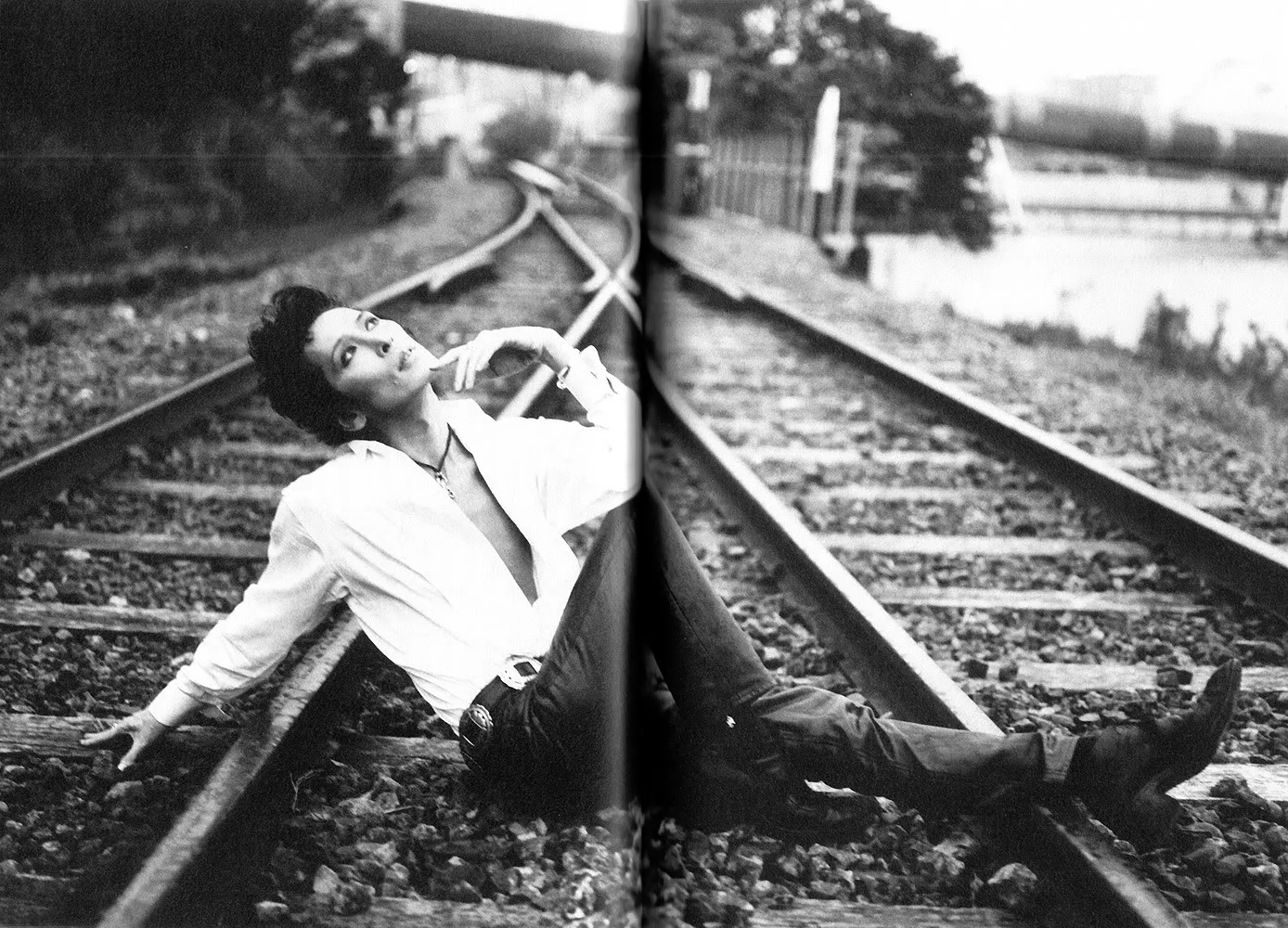――That was the first time you met an adult who said such things to you, wasn’t it?
I: You’re right. The guys in school were good guys too, and I’m still friends with them to this day.
――You had a distorted experience in human relationships but here were people who received you with open arms.
I: Yeah. It’s the good-naturedness that we call “being Shizuokan!” (Lol) No matter how much I doubted them or how much suspicion I had in me, they were all people who stuck around proper. If anything, they found me interesting, saying things like, “This guy’s something else.” For example, if something happened that I couldn’t take lying down, I would butt heads with the teacher or would typically get sent to the staff room and start a big fight in there, but even that they found amusing.
――Despite being brought up in an environment that promotes social withdrawal, you’re direct, aren’t you?
I: Because I don’t like what I don’t like. And maybe I did some reflection at some point. Since I couldn’t express that I didn’t like something when I was little. Anyway, it was at that time when my teacher suggested, “How about you try writing poetry?” But I said, “I’ve never written anything ike poetry before.” To which he said, “Because your writing is similar to poetry. If you just cut some words out, it’ll turn into poetry.” Even though I understood what he meant, I didn’t have the confidence for it, except, that was when I started using ISSAY as my name.
――As a pen name?
I: Because, you see, I always sign off my writings and poetry with ISSAY. Anyway, that was when I came across T. Rex. And at the same time, I gave Sex Pistols another listen and that’s when I thought, “If we’re talking about something like this, I might just be able to do it too.”
――As in, you could probably sing like this?
I: I could probably make songs like these. That I might be able to write poetry. Thinking about it now, that’s one astounding idea, isn’t it (lol).
――(Lol) It certainly is. Also because you weren’t even doing anything band-related.
I: (Lol) Because I wasn’t. As to why rock music, it’s because I thought such simple rock music was within my abilities, and also because it’s a genre that lets these people turn themselves into their own form of expression. When I realised that “I can dress however I like, wear makeup, and say whatever I like!”, it was instant enlightenment for me, you know?
――Like you’re finally liberated from your gloomy everyday life?
I: And the next thing was figuring out what to do, you know? So, there was this senior who was graduating ahead of me who played the guitar, so I told him, “I’ll definitely go to a university in Tokyo next year.” This senior’s friend also played the guitar but I told him, “Go practice playing bass for me. I’ll find a drummer in university.” And that marked the end of my second year in high school.
――All of a sudden you’re displaying initiative that looks like it comes from someone else.
I: Because, you see, I had to improve my academic abilities to a level that would get me accepted into a university, something I had never needed to do before. I figured that the only way I could leave home legally was to attend a Tokyo university. Furthermore, it would mean that I could eat for free for four years (lol). I thought I’d see what I could do there.
――Without telling your parents that you’d be doing music?
I: There’s no way I could tell them. So when I got to Tokyo, those were the days when YMO and all that new wave were all the rage. Like Bauhaus and bands like them were popular. It was a battle of ideas and as long as you had good taste, it would work out. And also, [much of it depended on] what the people who saw you thought of you. Anyway, since I’m abnormal¹, I knew that I would draw people’s attention no matter what so I found a drummer and started a band. That was ISSAY&THE SUICIDES.
――What kind of band was it?
I: Glam punk. Initially I said, “Why don’t we cover T. Rex. songs,” and then we went into a studio but then a melody came to mind while I was humming, and so we played an original song in our very first rehearsal. That got me convinced that I was a genius (lol).
――Do you remember what that song was?
I: Um, it was… MAD POET. It means “a crazy² poet”. After that, we went on to perform in a live house and that was the very first time someone said I was “good looking³”. Because I always thought I was a weird person.
――And those were the days before visual-kei was even a word, right?
I: It wasn’t, and while there were people getting up on stage wearing makeup, in my case, I wasn’t just wearing makeup because of music; I was wearing makeup because it’s my lifestyle. So having someone say that I’m “good looking” for the first time, that really got me thinking, “As I thought, this is where I’m meant to be. At the very least, as long as I’m standing on stage, I’m not weird.”
――So you grasped the chance to enter this universe once you performed in a livehouse?
I: Nah, that SUICIDES disbanded and I started my own solo project. That was when Morioka Ken (Soft Ballet) joined me as a member of my band, and bassist HAL, who later on formed DER ZIBET with me. So, during those days, I started getting covered in music magazines and featured in bishonen magazines, and that was how people in certain circles grew to know of my name.







































